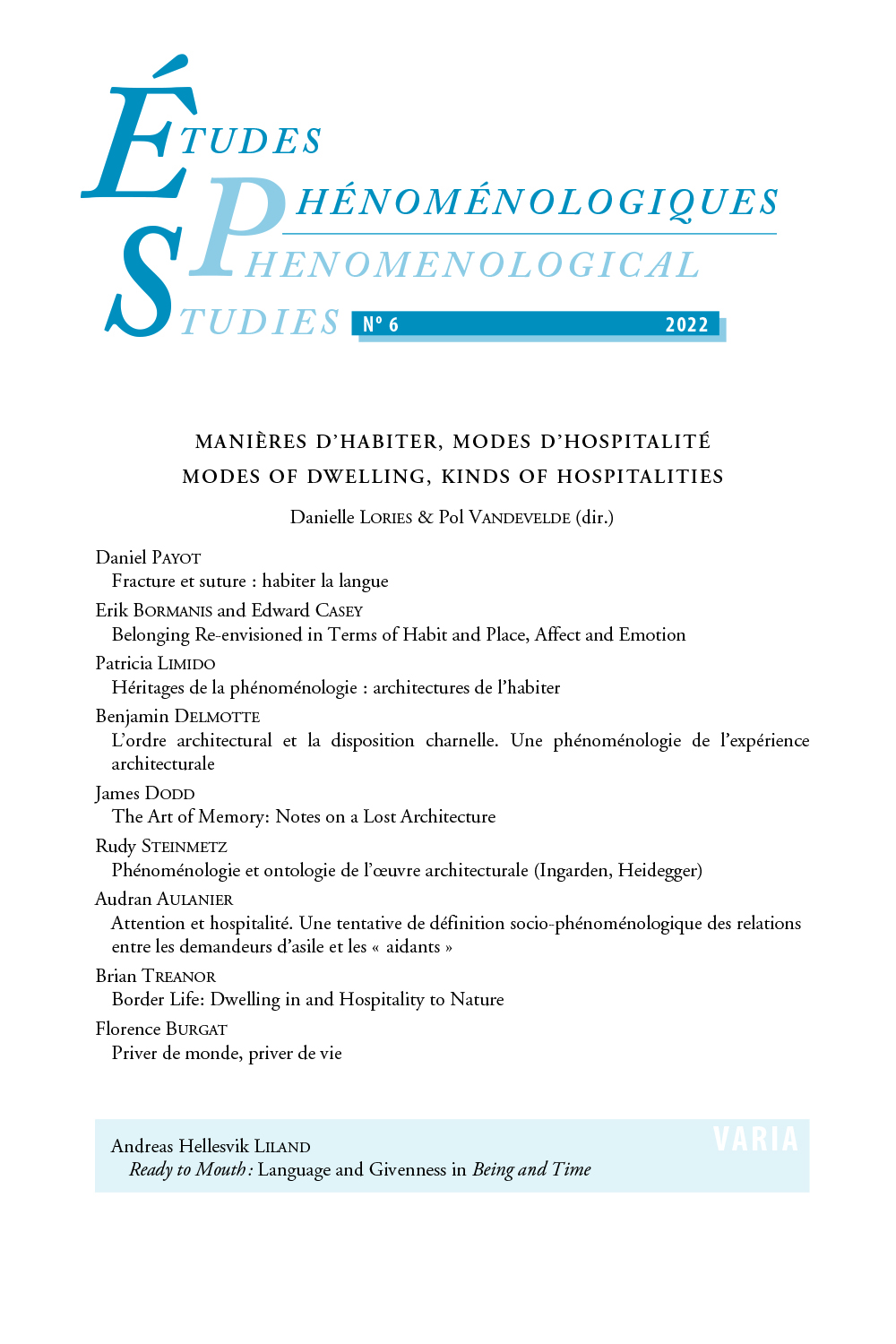 previous article in this issue previous article in this issue | next article in this issue  |

Preview first page |
Document Details : Title: Qu'est-ce qu'une philosophie militante? Subtitle: Phénoménologie et engagement dans la pensée de Merleau-Ponty Author(s): DODEMAN, Claire Journal: Etudes phénoménologiques - Phenomenological Studies Volume: 3 Date: 2019 Pages: 71-84 DOI: 10.2143/EPH.3.0.3285174 Abstract : How can we reconcile the will to make decisions from within our involvement in the world – what the word 'engagement' suggests – and the distance taken by the phenomenological stance and its absolute observer? How can we bracket our concern for the world and be engaged in the very same world at the same time? While a militant philosophy seems to be at first glance a contradiction in terms, Merleau-Ponty tells us that it replaces the errors of a triumphant philosophy. Thus, in order to understand a philosophical militancy we need a new understanding of what engagement means. The breakthrough of Merleau-Pontian phenomenology can be explained if we take the notion of engagement more seriously than Sartre did during the same period. Re-reading Mounier and Marcel, Merleau-Ponty combines 'Perceptual Faith' and 'Militant Philosophy' in order to guard himself against the temptation of a philosophy that takes a view from above. He gives us instead keys to read and understand his later political texts. This article defends the view that Merleau-Ponty’s militant philosophy explains the peculiarity of his political writings while remaining true to the phenomenological task. |
|


